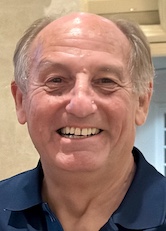
James P. (Pat) McAllister II, PhD
Professor and Vice Chair for Neurosurgery Research, Virginia Commonwealth University
Emeritus Professor of Neurosurgery, Washington University in St. Louis
Lecture Title: Animal Models of Hydrocephalus: An Engineering Perspective
Dr. James (Pat) McAllister is Professor and Vice Chair for Neurosurgery Research at Virginia Commonwealth University (VCU) and Emeritus Professor of Neurosurgery at Washington University in St. Louis. A pioneer in translational hydrocephalus research, Dr. McAllister has spent over three decades advancing our understanding of the cellular, physiological, and biomechanical mechanisms underlying cerebrospinal fluid (CSF) disorders. His work has had a lasting impact on both the scientific foundation and clinical management of hydrocephalus.
Dr. McAllister earned his Ph.D. in Neurobiology from Purdue University and completed postdoctoral training at the University of Vermont. His prior appointments include senior faculty and research leadership roles at UCLA, Temple University, the Cleveland Clinic, Wayne State University, and the University of Utah. Over the course of his career, he has led NIH-, DoD-, and foundation-funded programs spanning neuroimaging, neuroinflammation, catheter biocompatibility, and the development of novel CSF shunt technologies.
At VCU, he continues to direct an interdisciplinary research program focused on modeling hydrocephalus using small and large animal systems—including neonatal rat, ferret, and porcine models—to study disease mechanisms, surgical interventions, and emerging therapeutics. His work employs advanced MRI techniques such as elastography and diffusion imaging to explore brain compliance and white matter injury, while integrating principles of bioengineering and translational neuroscience to improve treatment outcomes.
Dr. McAllister is the recipient of the Robert H. Pudenz Prize for Excellence in Cerebrospinal Fluid Physiology and Hydrocephalus, awarded by the International Society for Pediatric Neurosurgery. He has served on numerous NIH and federal review panels, mentored generations of trainees, and published extensively in leading journals in neuroscience, neurosurgery, and bioengineering. His ongoing collaborations with engineers, clinicians, and basic scientists have shaped the field’s understanding of hydrocephalus and set the stage for the next generation of therapeutic strategies.
